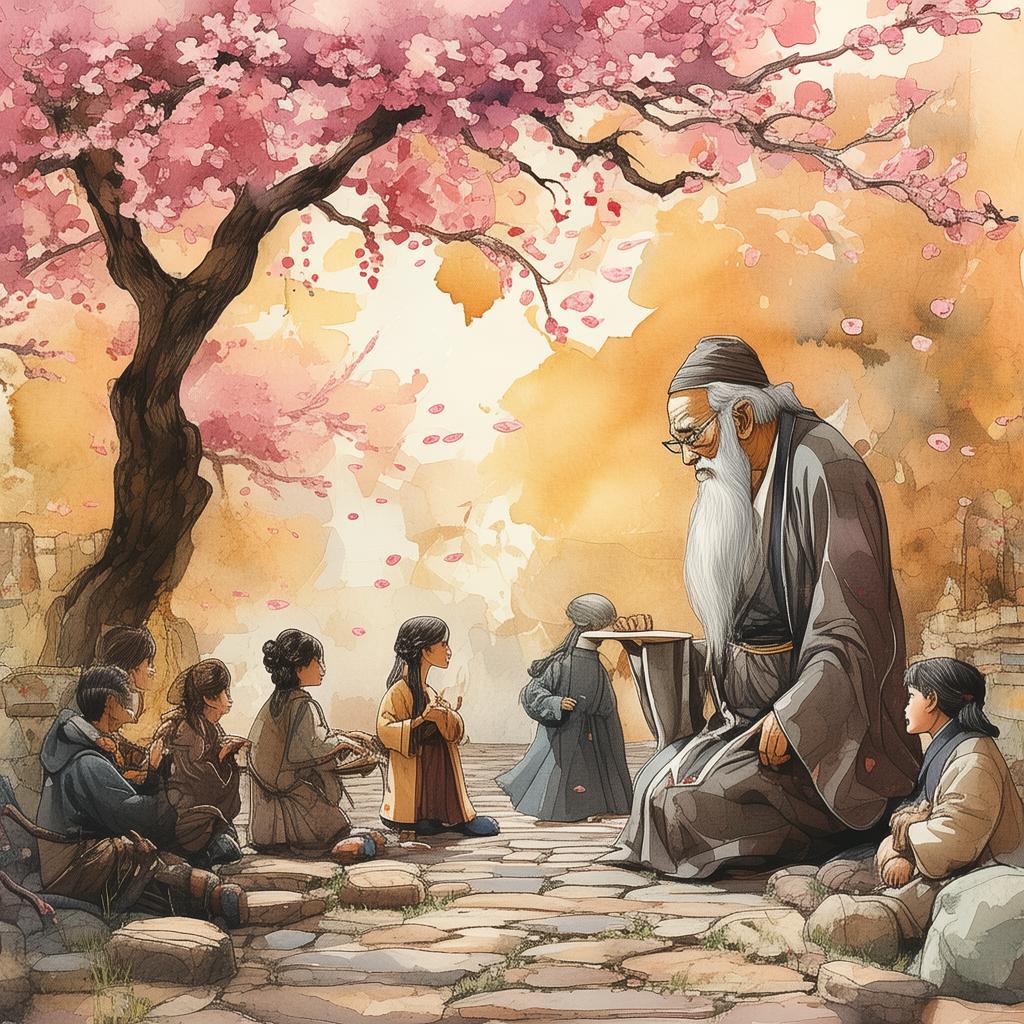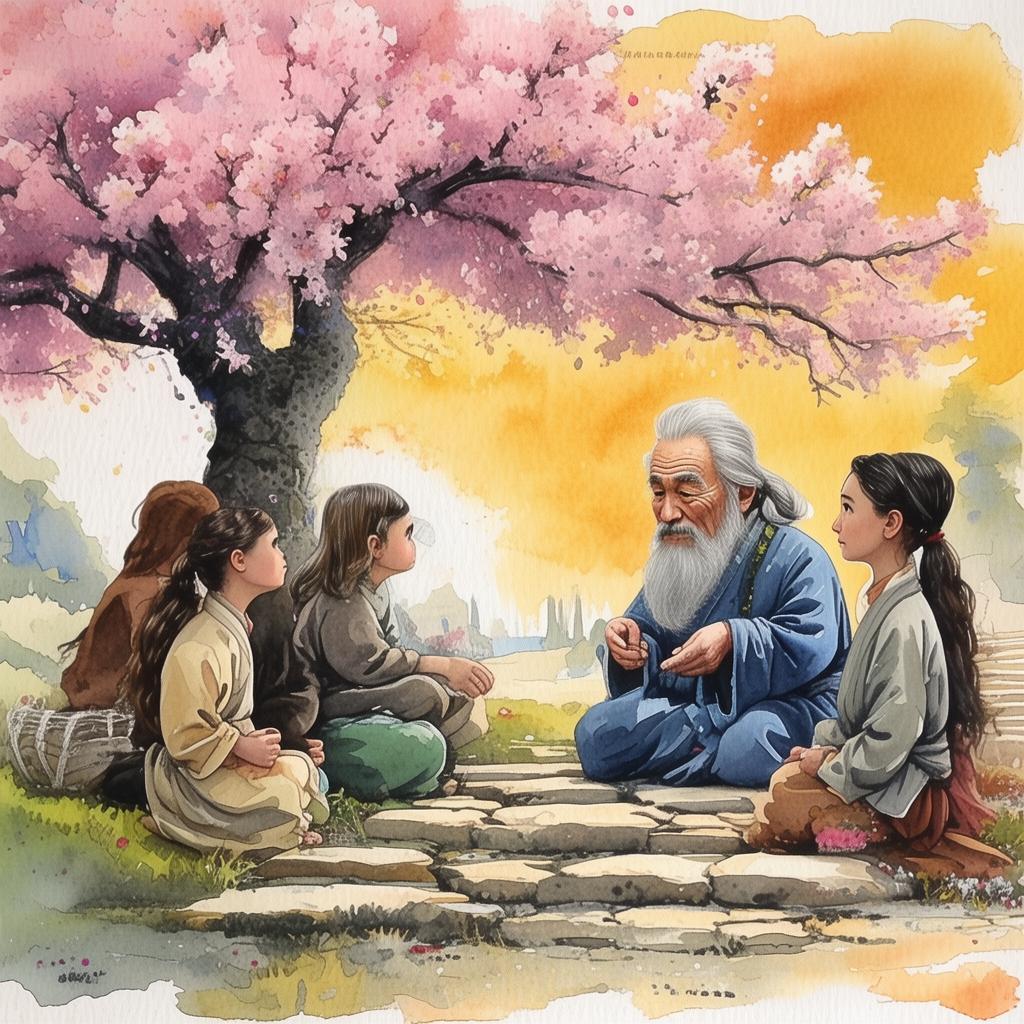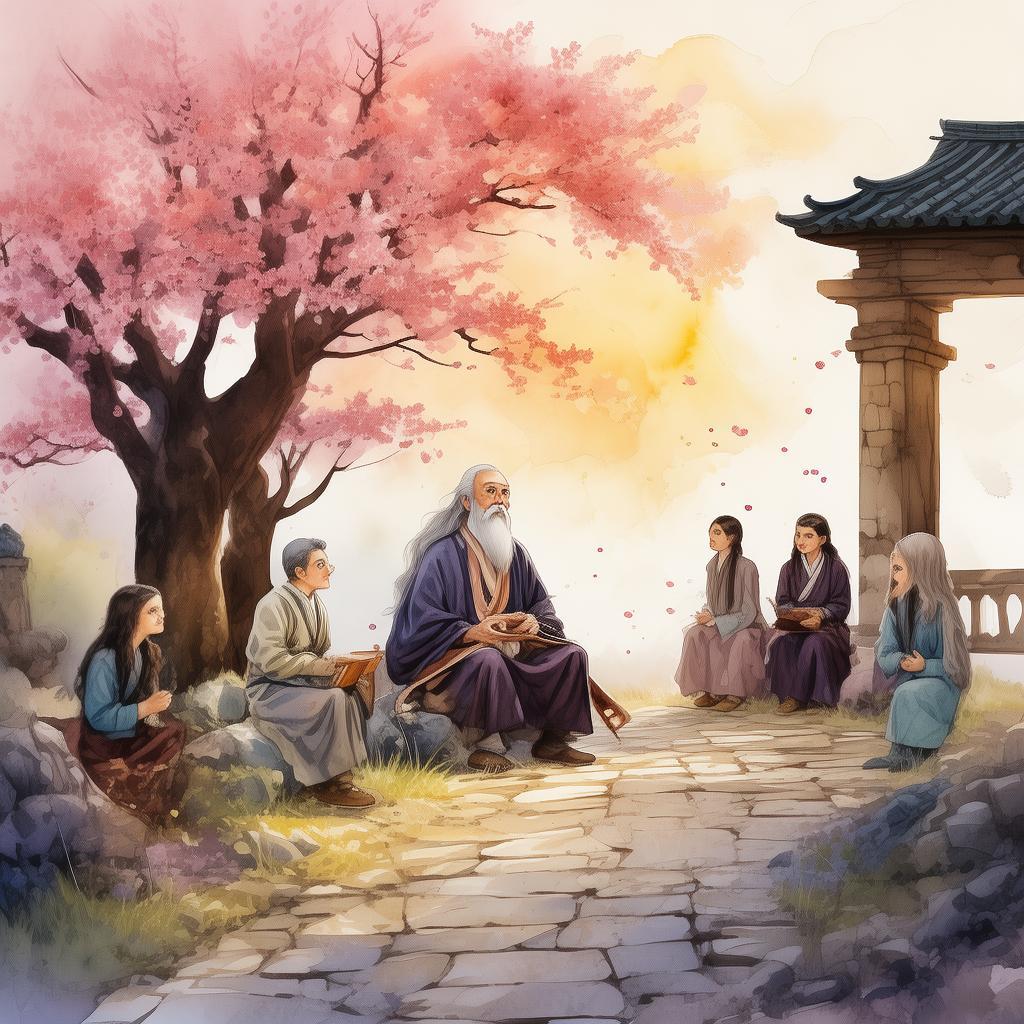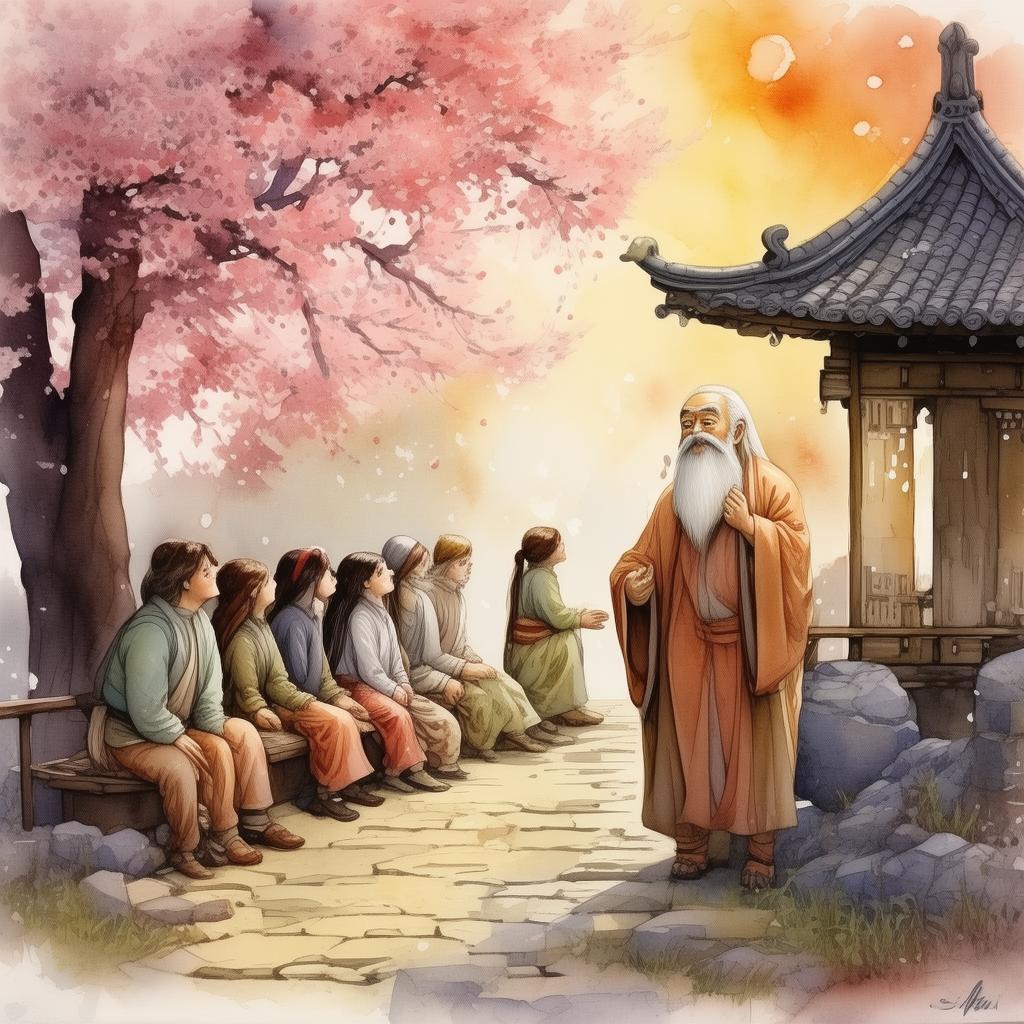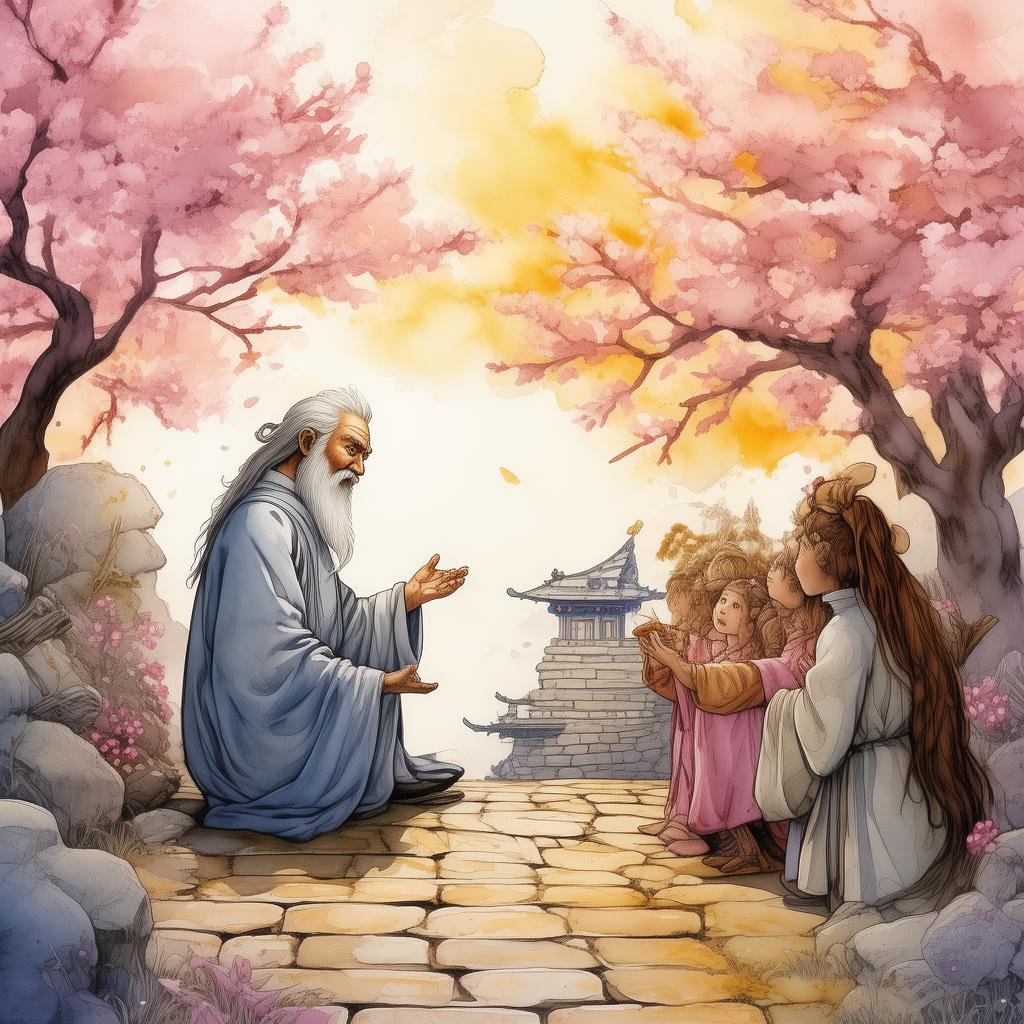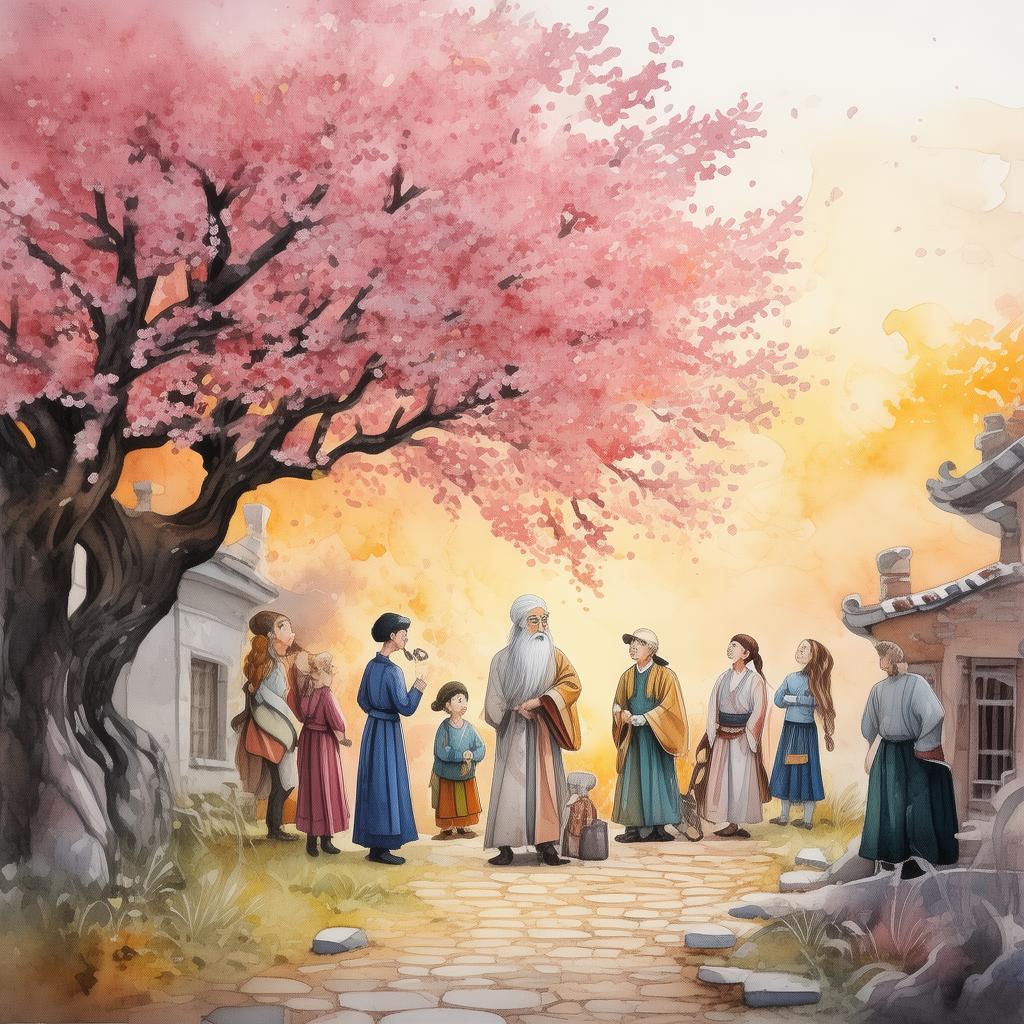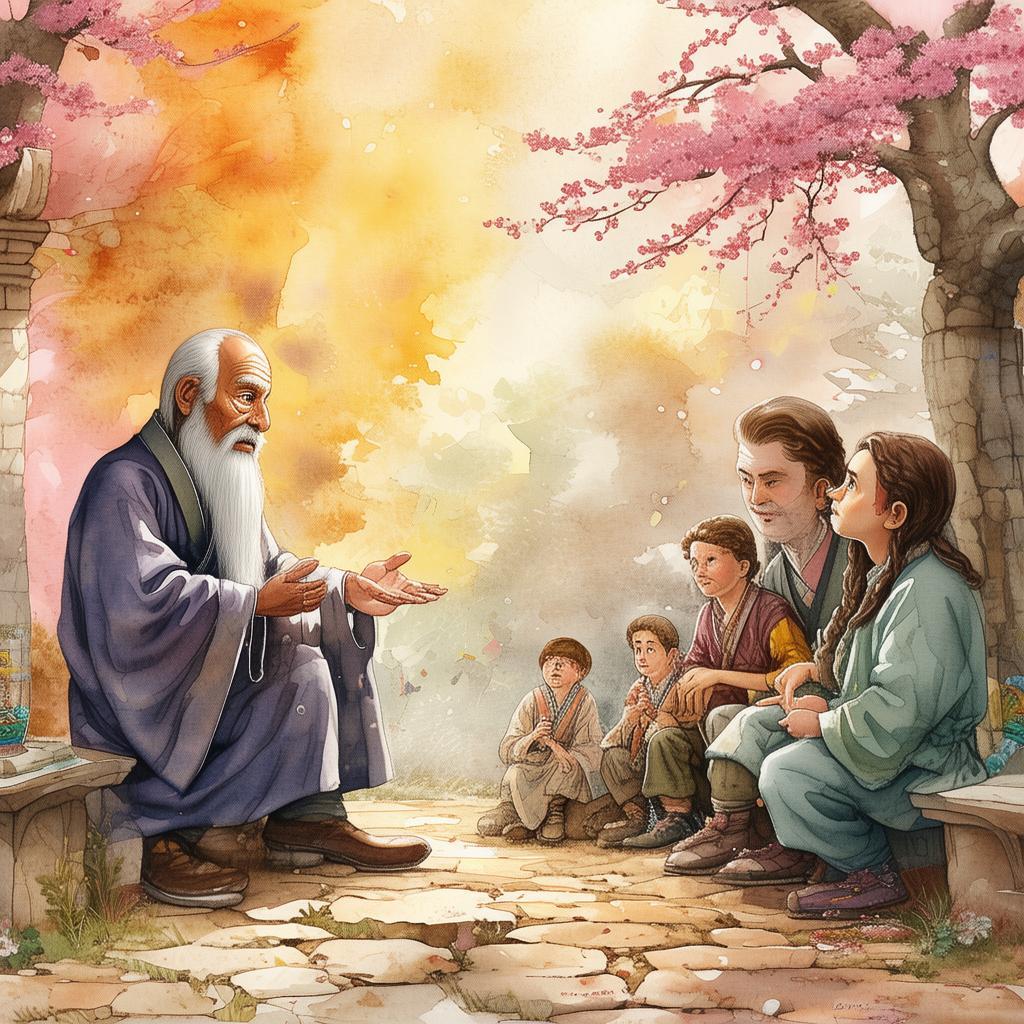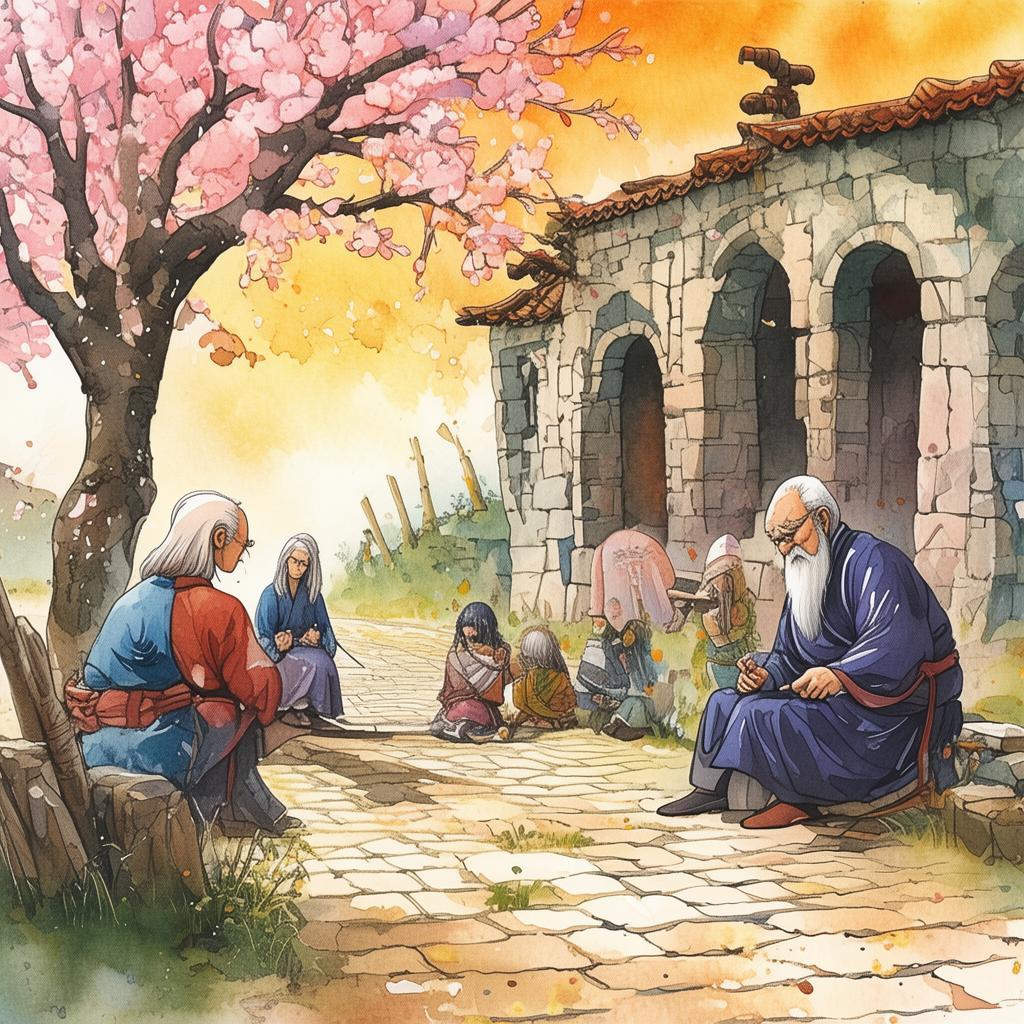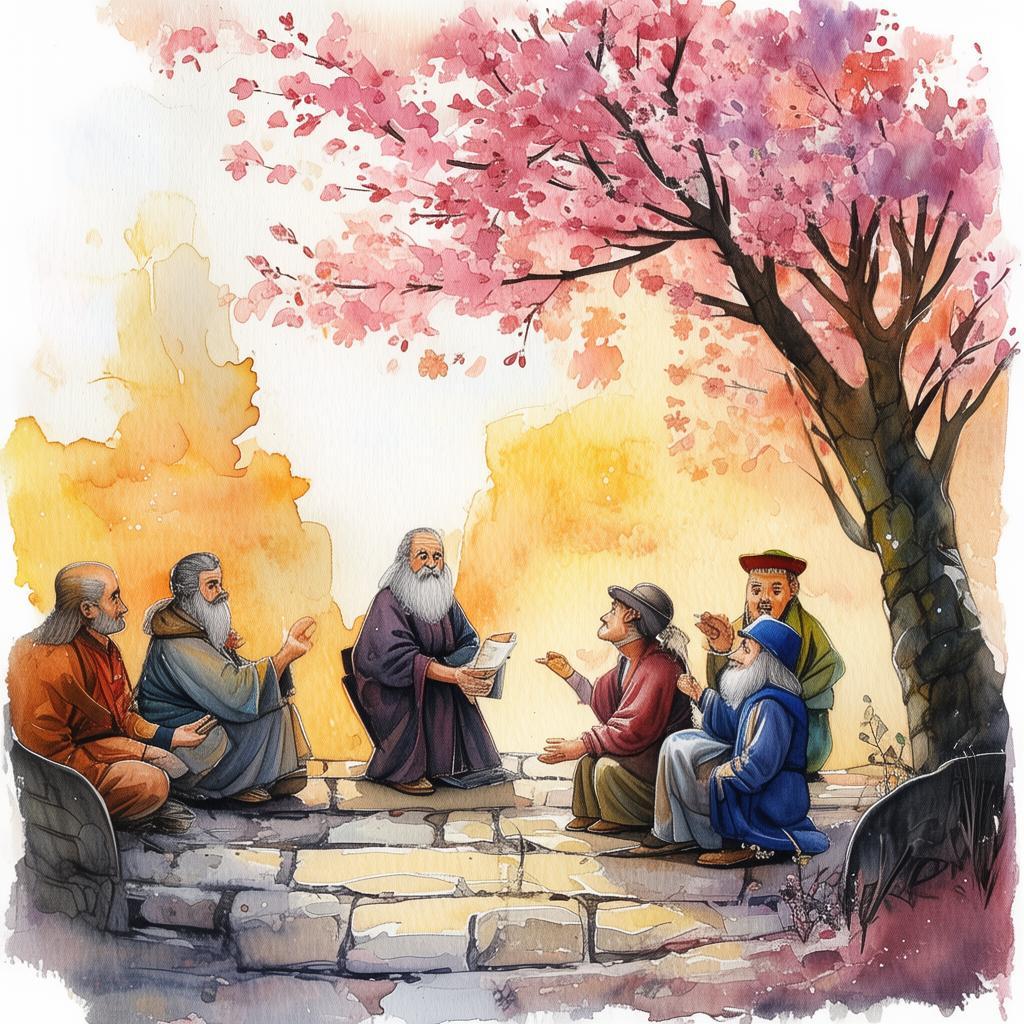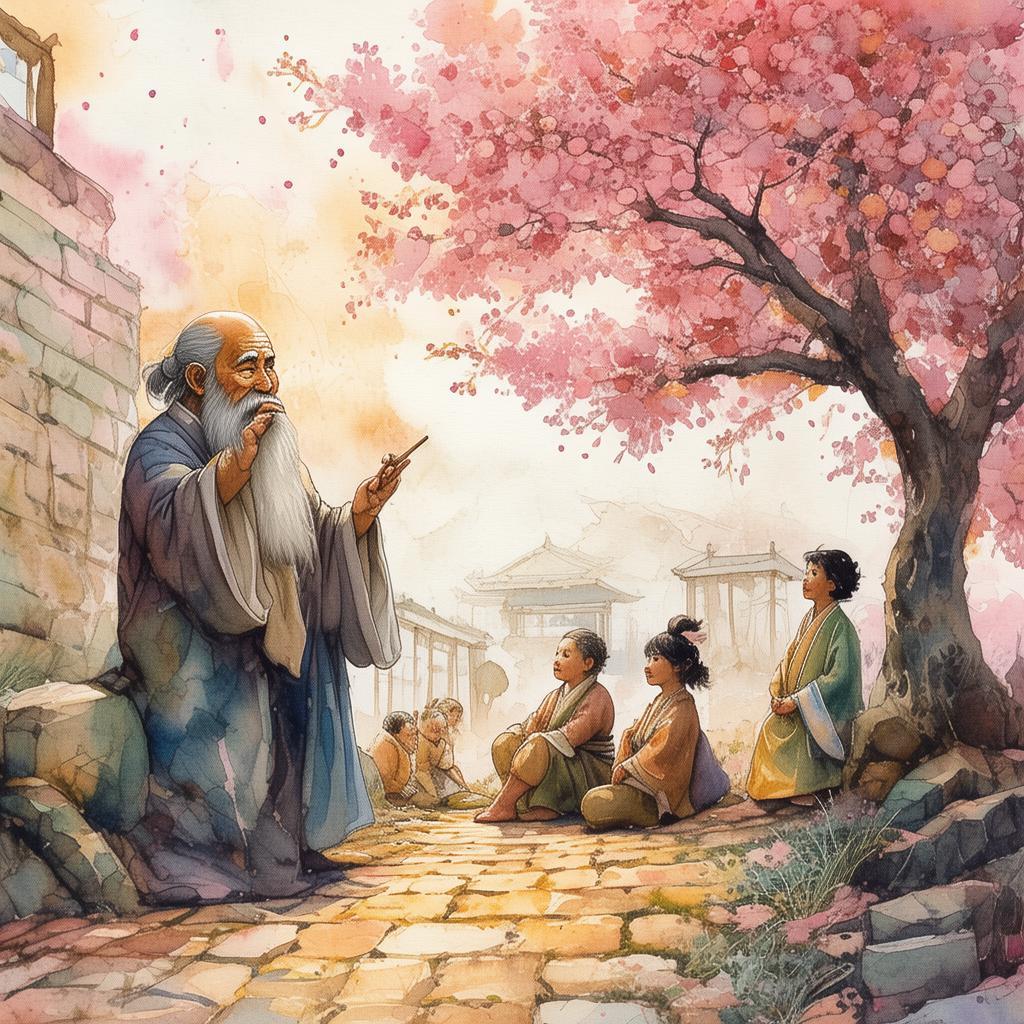The Labyrinth of Whispers: A Chessboard of Dreams
In the heart of ancient Suzhou, nestled between the willow trees and the serene canals, there lived a man known far and wide as Master Lin, the preeminent chess master of his time. His games were spoken of in hushed tones, and his strategies were as enigmatic as they were cunning. Yet, Master Lin harbored a secret that even the most astute minds could not decipher: a cryptic message that had appeared on his chessboard one fateful night.
The message was simple, yet profound: "The Chessboard of Dreams awaits the Liar's Fantasy."
Intrigued and somewhat amused, Master Lin began to ponder the origins of this peculiar message. It was as if the very fabric of reality was woven into the threads of his beloved game of chess. One day, while lost in contemplation, he noticed a peculiar symbol etched into the wooden floor of his study. It was a labyrinth, its path winding and intricate, and it seemed to beckon him to explore.
Master Lin's curiosity was piqued, and he decided to follow the labyrinth's path. As he ventured deeper, he found himself in a room unlike any other he had ever seen. The walls were adorned with tapestries that depicted scenes from various chess games, each one more surreal and intricate than the last. In the center of the room stood a grand chessboard, and as he approached, the tapestries began to move, each figure on the board coming to life and whispering secrets to him.
"The labyrinth of whispers," he mused, "is a chessboard of dreams."
The whispers grew louder, and Master Lin realized that they were not just the echoes of the tapestries, but the voices of those who had played the game of chess before him. Each whisper carried a tale of deceit, betrayal, and the ultimate cost of ambition. He listened intently, his mind racing to decipher the messages hidden within the fabric of the tapestries.
One figure in particular caught his attention: a man he had never seen before, but whose eyes seemed to pierce through the tapestry. The man was a chess master, like himself, but his demeanor was one of desperation and cunning. "The labyrinth of whispers is a trap," the man whispered. "It will consume you, unless you learn to play its game."
Master Lin, not one to back down from a challenge, decided to test the labyrinth's game. He sat down at the chessboard and began to play, his mind racing with the strategies he had honed over years of practice. But as he moved his pieces, the whispers grew louder, each move echoing with the weight of fate and deceit.
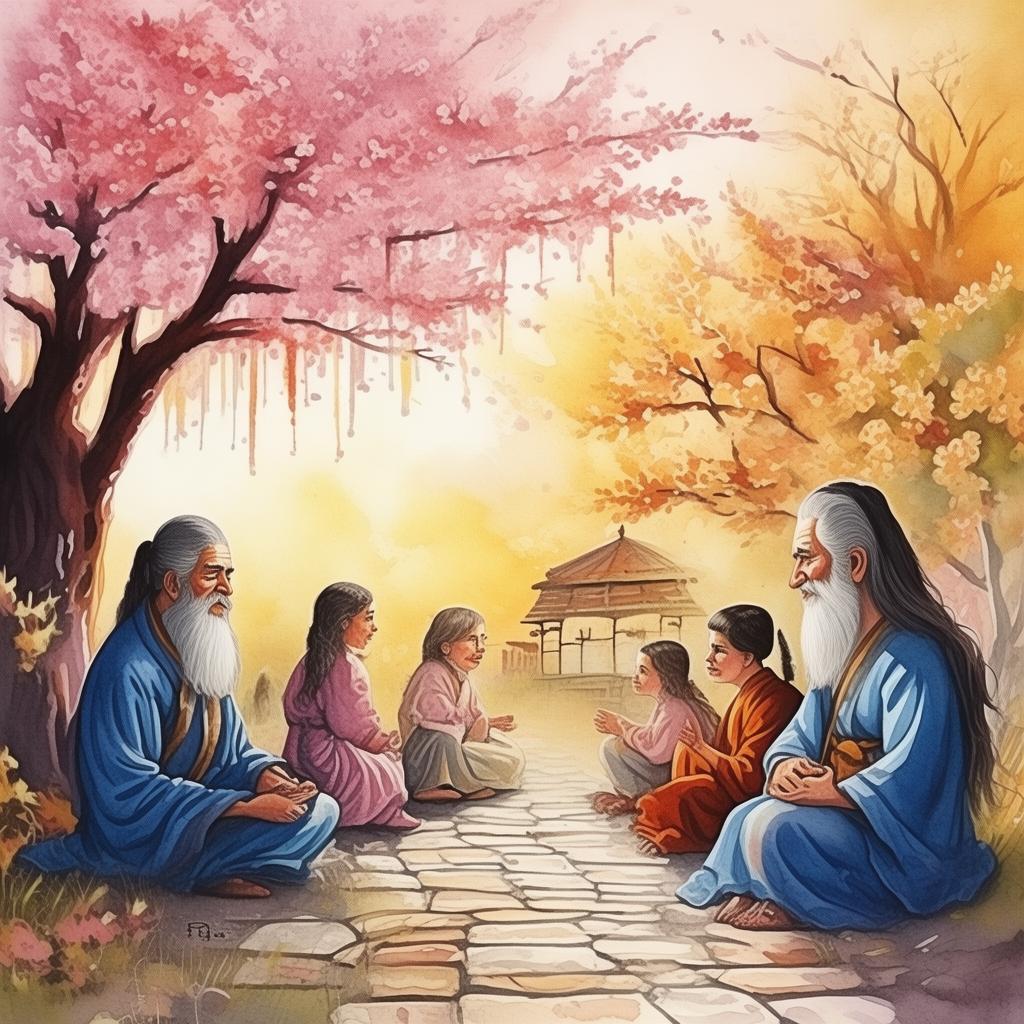
The game progressed, and Master Lin found himself caught in a web of his own making. Each move he made seemed to be met with a countermove, as if the labyrinth itself was alive and aware of his every move. The whispers grew more insistent, telling him of the consequences of his actions, the lives he had destroyed, and the truths he had hidden.
As the game reached its climax, Master Lin found himself facing a choice that would define his destiny. He could continue to play the game of chess as he knew it, or he could accept the labyrinth's challenge and face the consequences of his actions. The whispers grew louder, each one a reminder of the lies he had told and the truths he had suppressed.
In that moment, Master Lin realized that the labyrinth of whispers was not just a game; it was a mirror reflecting his own soul. He had spent his life playing chess, but now he had to confront the reality of his actions. With a deep breath, he chose to face the labyrinth's challenge, to embrace the whispers and let them guide him to the truth.
The game ended with a twist that Master Lin could not have anticipated. The man he had faced in the tapestry was revealed to be his own reflection, a projection of his innermost desires and fears. He had been playing against himself all along, and the labyrinth had been his own creation, a testament to his cunning and ambition.
In the end, Master Lin emerged from the labyrinth not as a conqueror, but as a seeker of truth. He realized that the game of chess was not just about winning or losing, but about the journey of self-discovery. The labyrinth of whispers had taught him that the true game of life was one of honesty and integrity, and that the greatest victory was the one he won over himself.
As Master Lin left the labyrinth, he carried with him the lessons he had learned. He returned to his life as a chess master, but this time with a new perspective. He began to teach his students not just the strategies of the game, but the importance of truth and the power of self-reflection. And so, the legend of Master Lin and the labyrinth of whispers lived on, a testament to the enduring power of honesty and the journey of self-discovery.
✨ Original Statement ✨
All articles published on this website (including but not limited to text, images, videos, and other content) are original or authorized for reposting and are protected by relevant laws. Without the explicit written permission of this website, no individual or organization may copy, modify, repost, or use the content for commercial purposes.
If you need to quote or cooperate, please contact this site for authorization. We reserve the right to pursue legal responsibility for any unauthorized use.
Hereby declared.
